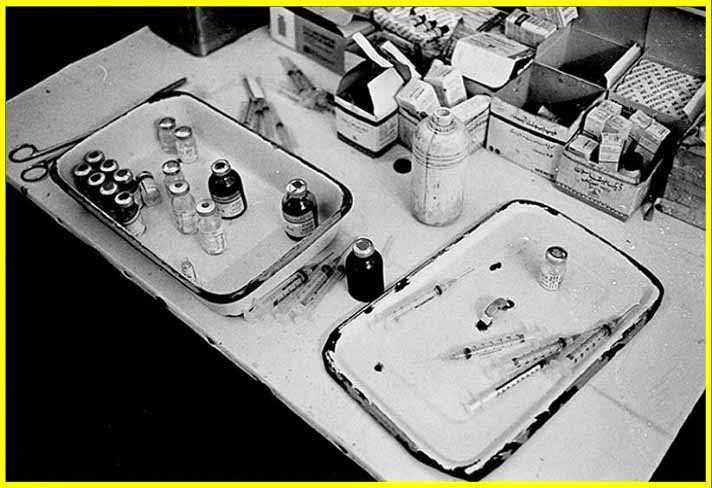|
|
|
Hepatitis C: Military-Related Blood Exposures, Risk Factors, VA Care
There has been considerable interest expressed by veterans and organizations representing them concerning the possible relationship between hepatitis C virus (HCV) infection and immunization with jet injectors (air gun injection) or other military-related blood exposures. Although there have been no case reports of hepatitis C being transmitted by a jet gun injection, it is biologically plausible.
Any veteran enrolled in the VA health care system who has concerns about hepatitis C infection, because of jet gun injectors, other blood exposure during military service, any of several risk factors, or for any other reason, is welcome and encouraged to request testing for hepatitis C at his or her nearest VA hospital.
Risk Factors for Hepatitis C
A number of factors help predict whether a person is at risk of hepatitis C; this doesn't mean these factors cause the disease, just that they are tend to occur more often in those with the disease than those without it.
VA recommends testing for anyone who
|
|
|
- Has ever used a needle to inject drugs, even if once and long ago
- Had a blood transfusion or organ transplant before 1992
- Several cases of tissue and organ transmission have been reported since 1992. The test used identified less than 50% of positive patients. It wasn't untill 2001 a new test found 99.9%.
|
 |
- Is a health care worker who had blood exposure to mucous membranes or to non-intact skin, or a needlestick injury
|
- Was on long-term kidney dialysis
|
- Was born of a mother who had hepatitis C at the time.
|
|
- Is a Vietnam-era Veteran
- 18% of all Veterans with Hepatitis C are post Vietnam Veterans
- Veterans from the War on Terror are also at high risk.
- Had contact with HCV-positive blood to non-intact skin or to mucous membranes
|
- Has ever snorted drugs and shared equipment
- Snorting does not cause Hepatitis C but sharing paraphernalia/equipment can transmit hepatitis C.
- Has liver disease or abnormal liver function test
- Hepatitis C does not always cause elevated liver test results. Service medical records with lab results are hard, if not imposable, to obtain. Older, private medical records are usually on microfiche.
- Has a history of alcohol abuse
- Has a history of hemophilia
|
- Has had a sexual partner with Hepatitis C, now or in the past
- Sexual transmission happens if trauma with blood results in both partners. The science is clear. Google this study: Sexual transmission of (HCV) is rare
-
2013
AASLD Study Hepatitis C not an STD
- Has had 10 or more lifetime sexual partners
- Sexual transmission happens if trauma with blood results in both partners
- Google this study: Lack of Evidence of Sexual Transmission of Hepatitis C Among Monogamous Couples: Results of a Ten-Year Prospective Follow-Up Study
- Has HIV infection
- 1 in 3 HIV patients are co-infected. 25,000 Vets have Hepatitis c and HIV, whereas depression and diabetes account for as many as 60% of patients.
- 50,000 Veterans with HCV are unaccounted within Veterans Health Administration
NewsWeek- VA's Hepatitis C Problem
|
VA says: The source of infection is unknown in about 10 percent of acute hepatitis C cases and in 30 percent of chronic hepatitis C cases.
Hepatitis C Care in VA
If a veteran does test positive for hepatitis C, VA has tremendous expertise to care for him or her. In fact, VA cares for more individuals with hepatitis C than any other health care system in the country. For hepatitis C-positive veterans who enroll in VA medical care, VA offers:
- Excellent patient education and professional education that both empowers the veteran and enables his or her health care provider to stay current with the latest disease management information
- All medications that can help hepatitis C or its complications, via the VA formulary
- A multifaceted team approach to care, with different specialists working together to help patients
- Dedicated professionals who take advantage of VA continuing medical education on the latest approaches to hepatitis C care
- Patient education via brochures, supports groups, education programs, and Web-based resources that helps patients be part of the care team
And should the disease worsen (which it can, over the years, in a small percentage of patients), liver transplantation is also available.
Much more information is available on this Web site. To find your local VA medical center, call the VA toll free at 1-800-827-1000 or visit the Web at www.va.gov/directory
|
|